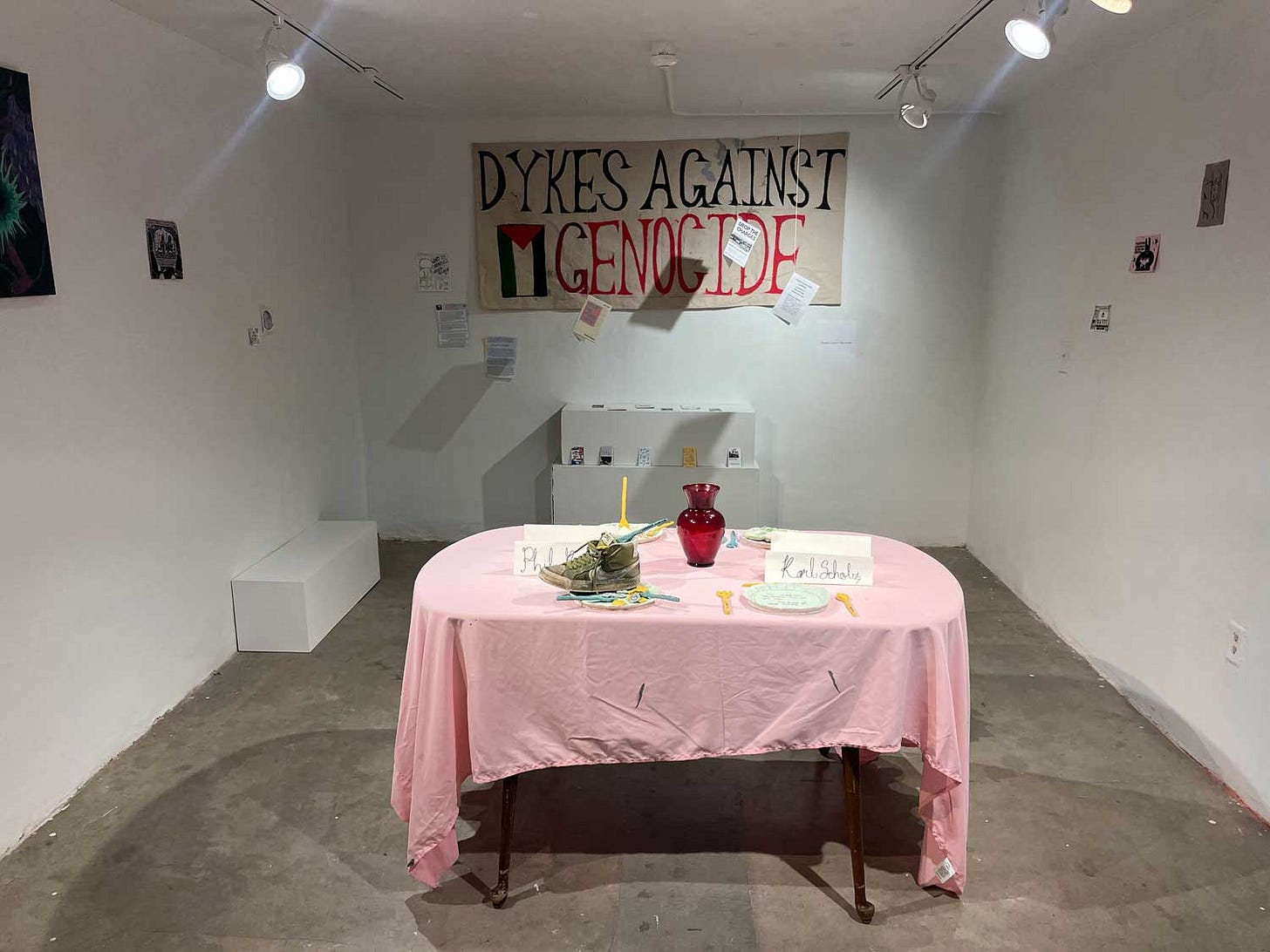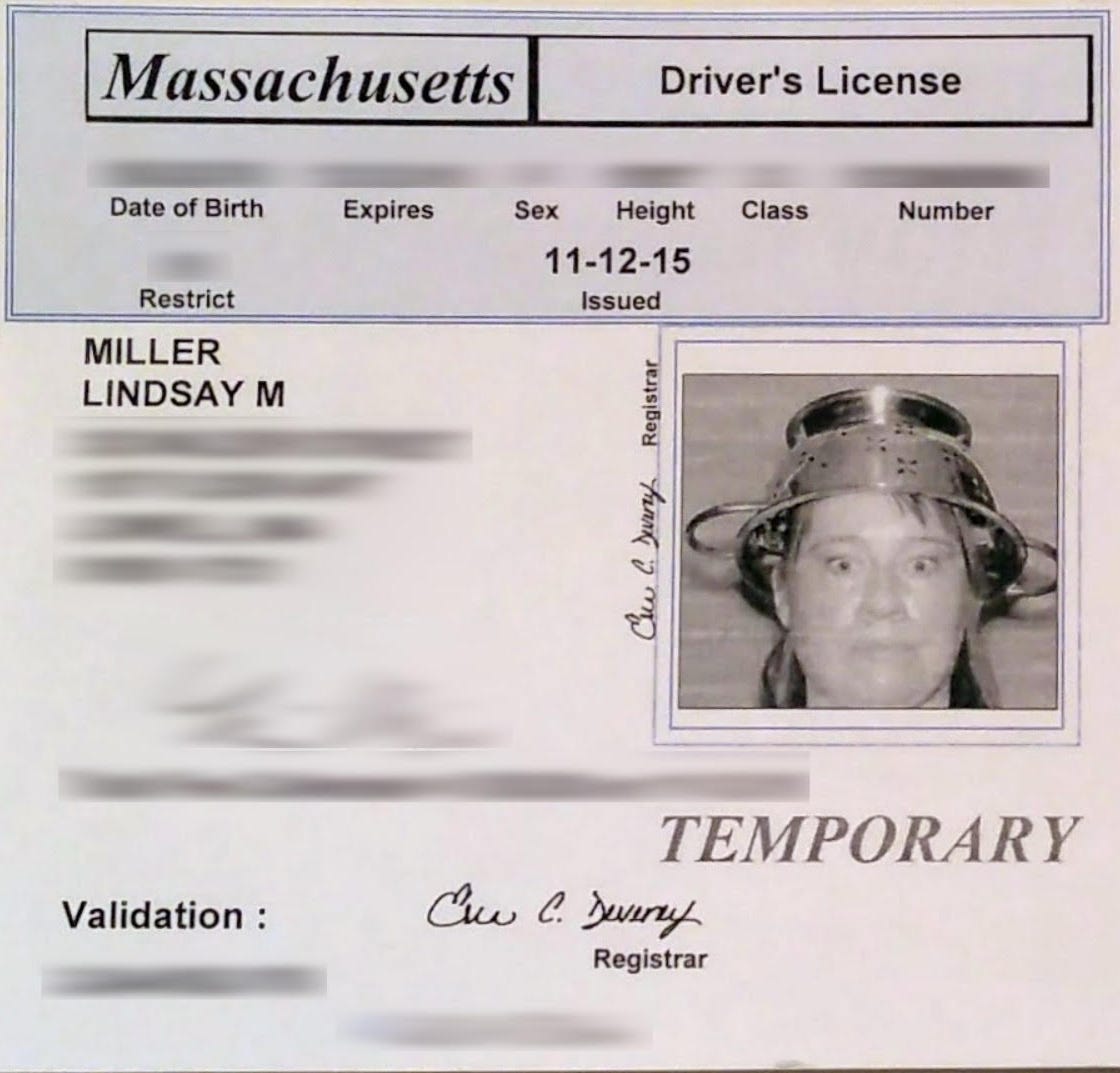Prioritizing Order Over Freedom
Two Local Governments Violate the First Amendment with Recent Actions
The right to free speech does not apply only when the content is popular or correct. The constitutional guaranty of free expression also applies when the content is unpopular, misguided, or even offensive. Two local cases highlight the importance of restraint when addressing speech that offends. Most often, the only appropriate, and legal, response is not official retaliatory action, but more speech to clarify, challenge assumptions, or reframe an issue. The University of Oregon’s response to an art exhibit targeting university leaders and Lane County’s response to protests against what some viewed as offensive merchandise sold by the GOP at the Lane County Fair both infringed on free speech rights, and neither has subsequently offered apology for their error.

UO has a history of forgetting that it is not just an educational institution, but also a state agency. As reported in the Eugene Weekly, a UO student created an art installation featuring a dining table with settings for UO President Karl Scholz, Nike Founder Phil Knight, and Dean of the UO College of Design Adrian Parr Zaretsky, who is reportedly Jewish. Tacked to the wall nearby was a poster suggesting that Dean Parr Zaretsky is complicit in genocide for Israel’s actions in Gaza. Dean Parr Zaretsky filed a complaint alleging anti-semitic harassment. The University hired an outside firm to investigate, and the artist received a notice that she was being investigated for possible violations of the Student Conduct Code. Pursuant to her rights under the Code, the student was assigned a (retired) faculty advisor. However, after the advisor spoke to the press about his concerns, presumably with the student’s consent, the University removed him from the case.

The University’s actions constitute a “heckler’s veto” - the attempt to prohibit speech because someone finds it offensive or disruptive to public order, rather than because it constitutes the incitement to imminent lawless action required by the Constitution to prohibit speech. The dean claimed the art installation was “part of a broader, coordinated pattern of anti-semitic attacks and threats” against the campus Jewish community. Nothing in the reporting suggests that the art installation, which was approved by the appropriate University officials, contained threats or other content that might raise legal concerns.
It is worth noting that Dean Parr Zaretsky denies supporting Israel’s actions in Gaza. Indeed, her career has been focused on resolving issues of water scarcity that contribute to conflict in region. In that sense, the criticism may be incorrect or unfair, but the Dean holds a public position - one that has a degree of supervision over the student - that position legally limits her options in responding. And, while the University was quick to point out that it was merely investigating the incident, its actions have had a chilling effect on the student and on campus speech more generally. This is part of a troubling pattern by the University, which has already put legally questionable restrictions on protest activities on campus and administered student elections in ways that clearly express a preference in the outcome.*
Lane County also suppressed political speech recently. According to reporting, the Lane County Republican Party marketed “Alligator Alcatraz” merchandise at their booth at the Lane County Fair, which progressive groups quite understandably found offensive. When these groups objected, the County pointed out their limited options in content-related restrictions on political speech. The activists responded by attempting to chalk the pavement in front of the booth. The County responded by prohibiting them from doing so, and that was a clear violation of their right to symbolic speech.

While the Fair administrators might have been justified in restricting the chalking on the basis that it disrupted the safe flow of foot traffic, it instead relied on the premise that the chalking somehow “threatened” the GOP’s booth. As with UO, the County did not specifically state which messages were offensive, but rather found that the mere act of chalking was somehow threatening. Having allowed the sale of the offending merchandise as speech, the Country took a clear position favoring this ‘disruptive’ commercial speech over the the non-commercial ‘disruptive’ chalking. As with the Dean above, I do not fault their motivation - to reduce conflict in the community - but, also as above, the County chose to do so an a way that prioritized the goal of reducing conflict over the legally more important protections given free expression.
As Justice Kennedy put it in a 2012 Supreme Court decision, “[t]he remedy for speech that is false is speech that is true.” The Trump Administration has made this difficult by itself persecuting governments and universities that do not impermissibly support the causes it promotes through suppressing contrary viewpoints. I appreciate the cost and difficulty in pushing back against an Administration that openly retaliates against institutions asserting their rights or obligations under the Constitution. Fortunately, the institutions challenging these orders have, to the best of my knowledge, universally succeeded when the issues have been taken to court. A better approach for both institutions would have been to encourage responsive speech from the Dean and the local progressive groups, rather than seeking to suppress debate on topics of public interest. Perhaps they will take this failure as an educational opportunity.
* I refer specifically to UO’s questionable decisions to limit protest activities to essentially one intersection on campus and their rules regarding prohibited campaign activities during student elections. These are clearly unconstitutional, but remain on the books.
Other News
Religiosity at the Lane County Commission
The County Commission has also struggled with Commission Chair David Loveall’s decision to include overtly and strongly Christian prayers at its meetings, another First Amendment issue. While the Supreme Court upheld the right of public prayer at non-compulsory public meetings in 2022, institutions engaging in such prayers must not exclude prayers by other religions and must not discriminate on the basis of religion in their decisions. This begs the question - would Commissioner Loveall be OK with an imam blessing the meeting? A Wiccan? A Satanist? A “pastafarian” adherent to the Church of the Flying Spaghetti Monster? All must be accommodated if they request it. Commissioner Loveall is entitled to his religion - but so is everyone else, no matter how popular or unpopular their beliefs.

Crowdsourcing
In the fall, I’ll teach two classes at UO - Youth and Social Change, in which I focus on activism skills, and US Immigration, which I’m team-teaching with a local practitioner. To engage students and make these big classes feel smaller, I have them select a current events project topic from a (long) curated list with a small group, research it, and present it to the class. What topics should our college students be researching and debating? Comment or send an e-mail to wildefororegon@gmail.com with your suggestions.
Disclaimers
In writing this column, I relied on the representations made in the press, including letters to the editor. Some of the facts remain in dispute.
The views expressed herein are those of the author and not necessarily those of the Department of Navy, the Department of Defense, the University of Oregon, or any other entity with which the author is affiliated.
Keep Letters from a Recovering Politician Free
As always, the best thing you can do to support this column is to share it with people who might be interested. I do not have a paid plan because I want folks to be able to access it without worrying about money. If you’d like to leave me a tip to show your appreciation, you can click on the Buy Me a Coffee or PayPal button below.


Another great post Marty. Your students will be very lucky to have access to such a talented, principled, and experienced advocate and legislator. Remembering the first time I met you at Elmendorf AFB in 1998 when you were giving us medics our Law of Armed Conflict briefing. You were impressive then and I can only imagine how your presentation is now.
Best,
Steve
When are we going to meet for breakfast?
Have you read Robert’s Rules of Order, “God before country”…. Maybe we should stop using ‘the manual
of parliamentary procedure widely used in the United States to conduct meetings and make decisions in an orderly and fair manner. It provides a framework for discussion, debate, and voting, ensuring that all members have the opportunity to be heard while maintaining efficiency and fairness. The rules are designed to protect the rights of the majority, the minority, individual members, and absentees.’
As I understand, Mr. Loveall, County Commissioner, prior to the meeting officially beginning, talked about the folding of the American Flag and the symbolism of each fold. Thirty nine times as a young lieutenant, I presented the folded American Flag to wife's, mother’s, and step mother’s. I really don’t have a problem talking about symbolism and US history.
Little story about Star Spangle Banner gives new meaning about ‘our’ survival to create the United States.
https://youtu.be/YaxGNQE5ZLA?si=Ej41vLcgCHxzzrRn